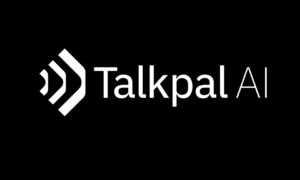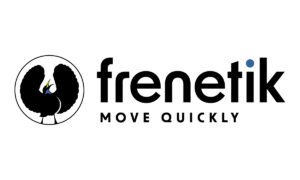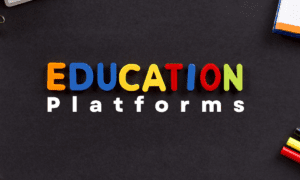EdTech startups have had a profound impact on remote learning in Maryland, providing the tools and solutions necessary to keep education going during a time of crisis. From online learning platforms to virtual tutoring and collaborative tools, these startups have transformed the way students learn and teachers teach. By addressing challenges such as student engagement, personalized learning, and the digital divide, EdTech companies are ensuring that remote learning remains a viable and effective option for Maryland students. As the education landscape continues to evolve, the innovations developed by these startups will be essential in shaping the future of learning in the state.
Introduction:
In Maryland, EdTech startups have been at the forefront of providing solutions that ensure the continuity of learning, no matter the circumstances. From online learning platforms to virtual tutoring and collaborative tools, these startups are redefining education in the digital age. In this article, we’ll explore how EdTech startups are driving the success of remote learning in Maryland and shaping the future of education.
The Rise of Remote Learning in Maryland:
Before the pandemic, remote learning was often seen as a supplement to traditional in-class education. However, the sudden closure of schools across Maryland in early 2020 made it clear that online learning would need to become a central component of education. As teachers, students, and parents navigated this uncharted territory, the demand for reliable and effective EdTech solutions skyrocketed.
EdTech startups in Maryland responded quickly to meet this demand. They developed tools that allowed teachers to create virtual classrooms, monitor student progress, and provide interactive learning experiences. While initially created as a temporary solution, remote learning tools have now become a permanent fixture in Maryland’s educational landscape. Many schools and institutions continue to rely on these technologies for hybrid learning models, and the role of EdTech in facilitating education is more important than ever.
Online Learning Platforms:
The Backbone of Remote Education:
One of the most significant contributions of EdTech startups to remote learning in Maryland is the development of comprehensive online learning platforms. These platforms serve as the foundation for virtual education, offering a range of features that help students and teachers stay connected and engaged in the learning process.
Some of the most successful startups in Maryland have developed platforms that allow for live video lessons, recorded lectures, assignment submissions, and even quizzes and assessments. These platforms ensure that students have access to learning materials regardless of their physical location. Additionally, teachers can track student progress, provide feedback, and adjust lesson plans in real-time.
Online learning platforms have proven to be a vital resource for schools in Maryland that have had to switch to remote or hybrid models. They offer a structured environment for students while also allowing for flexibility. Furthermore, these platforms are constantly evolving, with EdTech startups adding new features to enhance the learning experience.
Virtual Tutoring and Support:
One challenge that emerged during the shift to remote learning was the need for additional support outside the virtual classroom. Many students found it difficult to stay motivated or grasp complex subjects without face-to-face interaction. To address this, EdTech startups in Maryland developed virtual tutoring and support services that connect students with qualified educators in a one-on-one or group setting.
Virtual tutoring has become an essential part of remote learning in Maryland, helping students who may need extra help to stay on track. These services often use artificial intelligence to match students with tutors based on their specific needs, ensuring personalized support. Additionally, virtual tutoring platforms allow for flexibility, with students able to schedule sessions at their convenience and receive real-time feedback from tutors.
The success of these virtual tutoring platforms has been evident throughout Maryland, as students have reported improvements in both their understanding of subjects and overall academic performance. As remote learning continues to be a part of the education system, virtual tutoring is likely to remain a critical resource for students in Maryland.
Collaborative Tools for Student Engagement:
Maintaining student engagement has been one of the biggest challenges in remote learning. Without the social interactions and direct teacher oversight present in traditional classrooms, students can easily become distracted or disengaged. EdTech startups in Maryland have developed innovative solutions to address this issue by creating collaborative tools that encourage participation and interaction.
Many startups have introduced platforms that allow students to work together on projects, even when they are physically apart. These platforms offer features such as shared documents, discussion boards, and interactive whiteboards, enabling students to collaborate in real-time. Additionally, many EdTech companies have created gamified learning environments, where students can earn rewards for completing tasks or participating in discussions, fostering a sense of achievement and motivation.
By providing tools that mimic the collaborative aspects of in-person learning, EdTech startups in Maryland are helping to keep students engaged and connected. These platforms encourage active learning and ensure that students can still benefit from peer-to-peer interactions, even in a remote setting.
Data-Driven Insights for Personalized Learning:
One of the key benefits of EdTech in remote learning is the ability to collect and analyze data on student performance. In traditional classrooms, teachers often rely on standardized tests and observations to gauge a student’s progress. However, in a remote learning environment, teachers can access a wealth of data that provides deeper insights into how students are performing.
Maryland’s EdTech startups are developing platforms that use data analytics to track student engagement, participation, and performance in real-time. These platforms generate reports that allow teachers to identify which students may need additional support and which students are excelling. By analyzing data on how students interact with learning materials, teachers can tailor their instruction to meet the needs of individual learners.
This data-driven approach to personalized learning is especially valuable in a remote setting, where it can be difficult for teachers to monitor each student’s progress as closely as they would in a traditional classroom. With the help of EdTech platforms, educators in Maryland can ensure that all students receive the support they need to succeed in a remote learning environment.
Bridging the Digital Divide:
Despite the many benefits of remote learning, one of the major challenges it presents is the digital divide. Not all students in Maryland have equal access to the technology required for online learning, such as high-speed internet or personal devices. This disparity can hinder the ability of some students to fully participate in remote learning, creating inequities in education.
EdTech startups in Maryland are working to bridge this digital divide by providing affordable solutions and partnering with schools to distribute technology to underserved communities. Some startups are developing low-cost devices specifically designed for educational purposes, while others are creating platforms that can be accessed with minimal internet bandwidth. These efforts are helping to ensure that all students, regardless of their socio-economic background, have access to quality education.
By addressing the digital divide, EdTech startups are playing a crucial role in promoting educational equity in Maryland. Their solutions are making remote learning more accessible and ensuring that all students can benefit from the advantages of technology in education.
Preparing for the Future of Education:
The impact of EdTech startups on remote learning in Maryland extends far beyond the pandemic. As schools and institutions look to the future, it is clear that the innovations developed by these startups will continue to shape education for years to come. Remote learning is no longer seen as a temporary solution but as a valuable complement to traditional education models.
Many schools in Maryland are adopting hybrid learning models, where students split their time between in-person and online instruction. EdTech tools, such as learning management systems, virtual classrooms, and collaborative platforms, are essential to making this model work. Furthermore, the skills that students and teachers have developed during remote learning, such as digital literacy and self-directed learning, will be invaluable in the future.
As Maryland continues to invest in education technology, EdTech startups will play a vital role in driving innovation and improving the quality of education. Their contributions to remote learning have not only helped schools navigate the challenges of the pandemic but have also laid the foundation for a more flexible, personalized, and inclusive education system.
Conclusion:
The COVID-19 pandemic drastically changed the way education is delivered, especially with the shift to remote learning. As schools and colleges in Maryland scrambled to adapt, EdTech startups rose to the occasion, offering innovative tools and technologies to facilitate online education. These companies have been instrumental in helping students, teachers, and parents adjust to a new way of learning, and their influence continues to grow even as schools transition back to hybrid and in-person models.



































